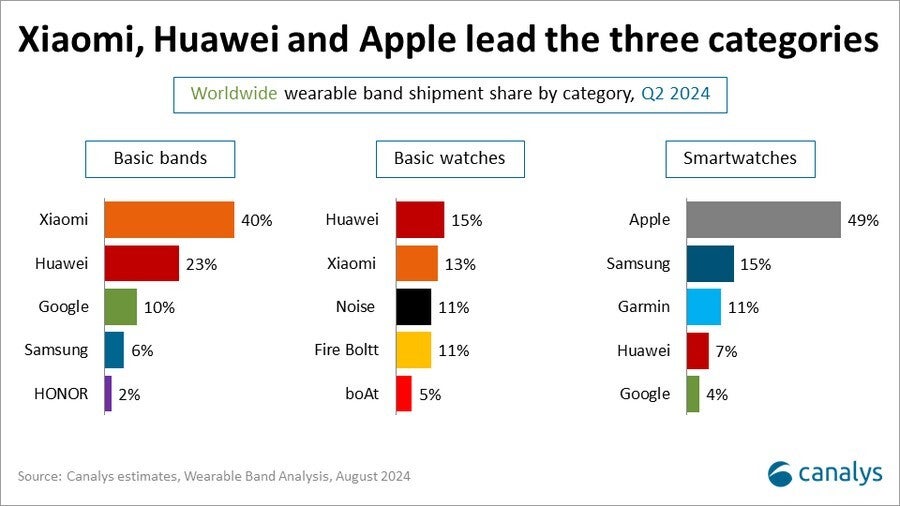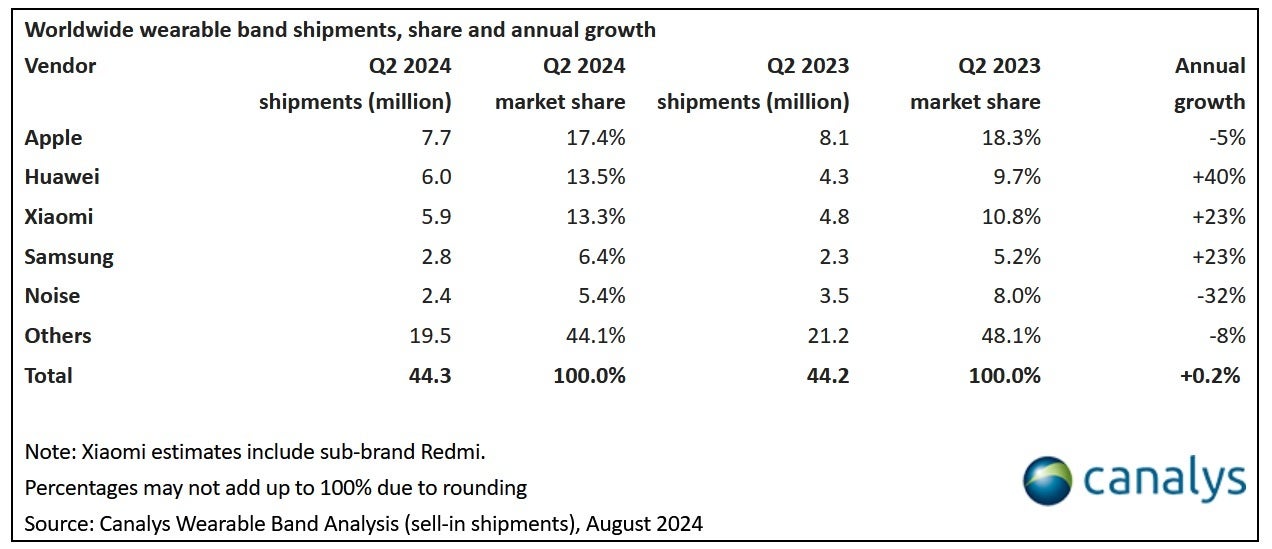“These ecosystem vendors are set to introduce advanced health and fitness tracking features to counter Garmin’s ongoing success, spurring a wave of device upgrades. To succeed in this competitive market, smartwatch vendors must deliver significant improvements in health tracking and battery life over previous generations…Growth in both the smartwatch and basic watch categories can be sustained in the short term, but over the coming years, these segments may begin to cannibalize each other as they increasingly target similar features and markets. To prevent this, smartwatch vendors must introduce new differentiators or use cases, such as gesture controls or GenAI integration, which leverage the superior computing power of smartwatches.”-Canalys Research Manager Cynthia Chen

The leaders for each of the three segments of the wearable band industry. | Image credit-Canalys
But smartwatches are only one of three different segments that make up the wearable band industry. The other two parts of the equation include Basic Bands which is led by Xiaomi whose Smart Band is a big seller every year. Xiaomi’s 40% share of the Smart Band market during Q2 easily beat out Huawei’s 23%, Google’s 10%, Samsung’s 6% and Honor’s 2%.
The third part of the wearable band industry is made of Basic Watches. Huawei and Xiaomi were neck and neck during the`second quarter as they made up 15% and 13% of Basic Watch shipments during Q2. Noise and Fire Boltt were both tied for third each with 11% of the market. In fifth was boAt with 5%.


Apple is on top of wearable band manufacturers worldwide. | Image credit-Canalys
Putting all three segments together, the leading manufacturer in the wearable bands market during Q2 was Apple having shipped 7.7 million units during the second quarter of 2024, off 5% from the previous year. Apple led with a 17.4% market share. With 6 million shipments making up 13.5% of the wearable bands industry, Huawei was second. The beleaguered Chinese outfit saw its wearable band deliveries soar 40% on an annual basis.
Overall, 44.3 million wearable bands were delivered during the second quarter which was a small .2% annual gain for the period.

